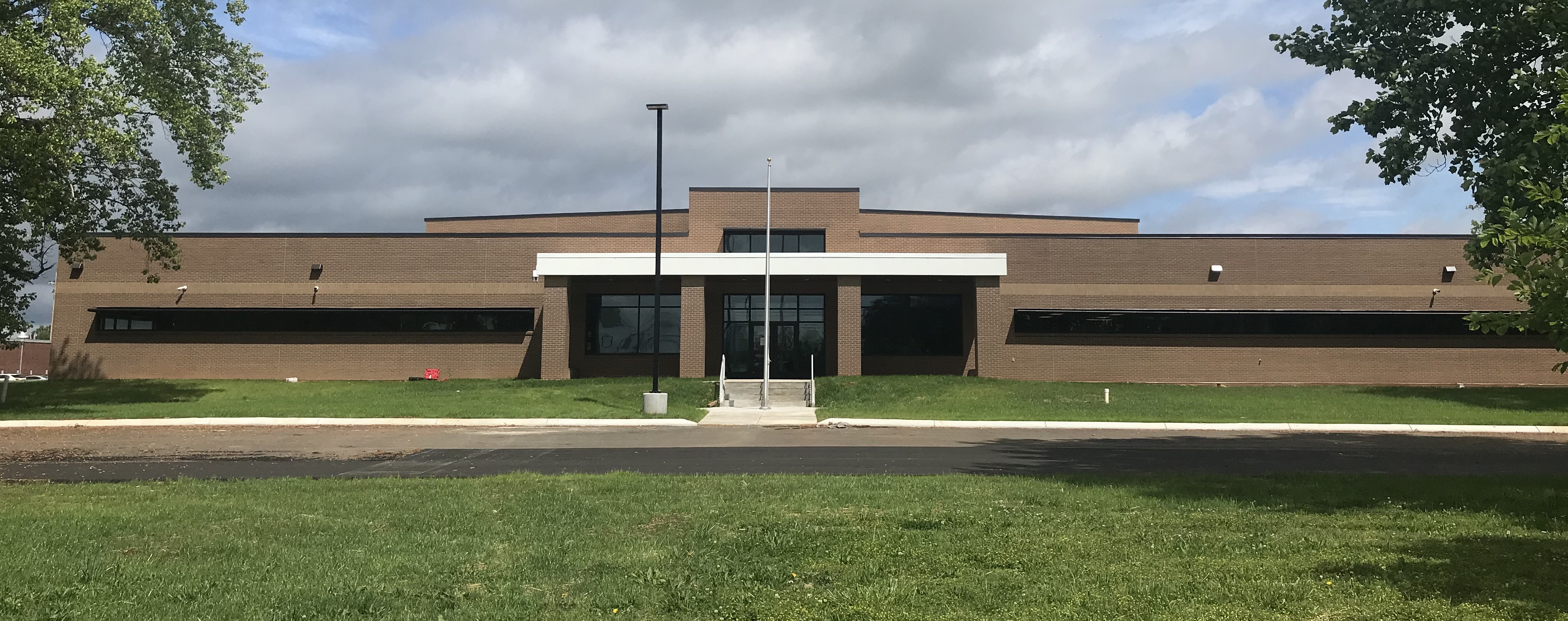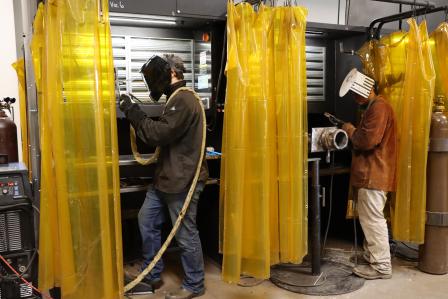Archived Content
This site contains information that has been considered archived and will no longer be updated.
EDA Investment Brings Critical Job-Training Programs to Franklin County, Tennessee
Franklin County, Tennessee is a small community rich in history. Located about two hours from Nashville, it was first established in 1800 and named for one of the most famous Americans of that time—or any time—Benjamin Franklin. One of the earliest settlers was noted frontiersman Davey Crockett, who called Franklin County his home for more than four years.
A mere 200 years later, Franklin County is home to more than 43,000 residents. This area was known as an agricultural and manufacturing hub for many years. However, local leaders saw the need to diversify their industrial opportunities and the training that goes along with it.

“A lot of our high school graduates wanted training that just wasn’t available here in Franklin County, and they’d have to travel two counties over,” said Chris Guess, Franklin County Mayor. “We wanted to help motivate our young people and give them the tools necessary to find good-paying, local jobs.”
Today, those students attend the Tennessee College of Applied Technology (TCAT), a project more than ten years in the making. With support from EDA, TCAT provides six high-demand and advanced-skill training programs, including information technology, industrial maintenance, nursing, welding and more.
TCAT was first initiated by former mayor Richard Stewart, who today serves as deputy director of the South Central Tennessee Development District, one of about 400 EDA-designated Economic Development Districts (EDD) that support regional economic development. The ambitious project was both inspiring and daunting, leading to delays.
In 2007, after years of setbacks, Stewart knew just who to call to get the project off the ground.
“I asked Christine Hopkins to chair a committee that would get us a TCAT campus, once and for all, and she’s the reason that it’s here today. Every mayor was fond of her and admired her never-quit attitude.”
Hopkins’ first task was to identify where the campus would be located. She zeroed in on a piece of property owned by the County School Board, where a recently closed high school remained. She noted that it was an ideal location to continue educating the young people of Franklin County, and the school board was quick to agree, donating the land necessary for the project.
“We knew that something educational needed to be on that site, but when we first started the project, the economy was less than great,” said Hopkins, who now serves as executive director of Middle Tennessee Rural Reentry. “I couldn’t give up on this project if I’d wanted to. It was going to happen – it was just a question of when.”

That was when TCAT became a community-wide project. State Senator Janice Bowling continued to support the project in Nashville. Every employer was also happy to help, and students at the local high schools got actively involved. Grade school children showed their desire for the project as well by writing letters of support. As Hopkins notes, they wrote from their hearts.
Despite all their efforts however, approval for the project wouldn’t come until 2018. The state was quick to provide the first $5 million. Franklin County contributed an additional $1 million, but the committee knew they’d have to seek additional funding. They reached out to the Economic Development Administration, which provided a $2 million award through its Public Works program to support construction of the 32,000-square-foot facility.
The TCAT has served as a lynchpin for the community, as students no longer need to travel outside the county for job-related training. Additionally, since the TCAT opened its doors in 2019, area high schools report a nearly twenty-percent increase in college-ready students.
It also serves to attract other businesses to the area, according to Pam Kreidenweis, Director of Economic Development for Franklin County. She notes that it’s been a boon for the local economy and a great asset in discussions with potential industry. She adds that Nissan automotive uses the TCAT facility to train workers for jobs in and around Franklin County.
“I can’t stress enough what a shot in the arm this has been for Franklin County,” said Mayor Guess. “It has allowed us to help train young men and women to go out and be productive members of our community. It’s not only been a rewarding experience for them, but for us as well.”
To read about other EDA success stories, please visit eda.gov.
